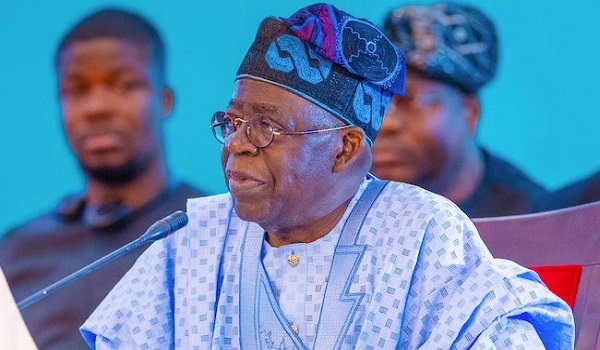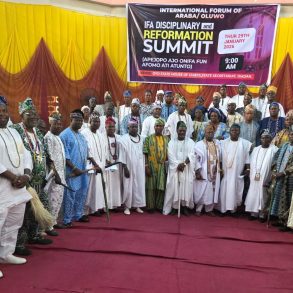President Bola Tinubu says Nigeria has the requisite and sufficient manpower to spur development across all sectors of the economy.
Receiving a report titled, ‘Industrialisation, Energy ,Security, and Climate Change: Issues, Challenges and Prospects,’ submitted by the Senior Executive Course 45 of the National Institute for Policy and Strategic Studies (NIPSS), in Abuja, on Friday, the President said his administration would review the document and integrate salient recommendations into on-going policies and programmes within the Renewed Hope Agenda.
Commending the report’s wealth of research and recommendations, President Tinubu said: ”I give you credit for a good job done. This report will be treated with all seriousness. You have fished out the issues. You have noted the challenges, and you have recommended very constructive solutions and showed the roadmap to achieve sustainable development goals for our country. Definitely, our hope is renewed.
”Who says that we do not have it as a country? Commitment to research and development; that high level of inquisitiveness, the manpower needed is here.”
Earlier, the Director-General of the Institute, Prof. Ayo Omotayo, said during the 10-month period of the course, participants engaged in series of lectures and seminars, brainstorming sessions, as well as study tours to 13 countries and seven states in Nigeria.
He said the Senior Executive Course 45 comprised of 97 participants drawn from federal and sub-national governments, security and intelligence agencies, civil society, private sector, and labour unions.
”As an apex institution for policy research and strategic studies in Nigeria, the National Institute is entrusted with a solemn duty of charting the course of our national development.
”Our mandate encompasses the rigorous analysis of complex policy issues, the formulation of forward-thinking strategies, and the cultivation of visionary leaders capable of steering Nigeria towards a prosperous and sustainable future,” Prof. Omotayo said.






